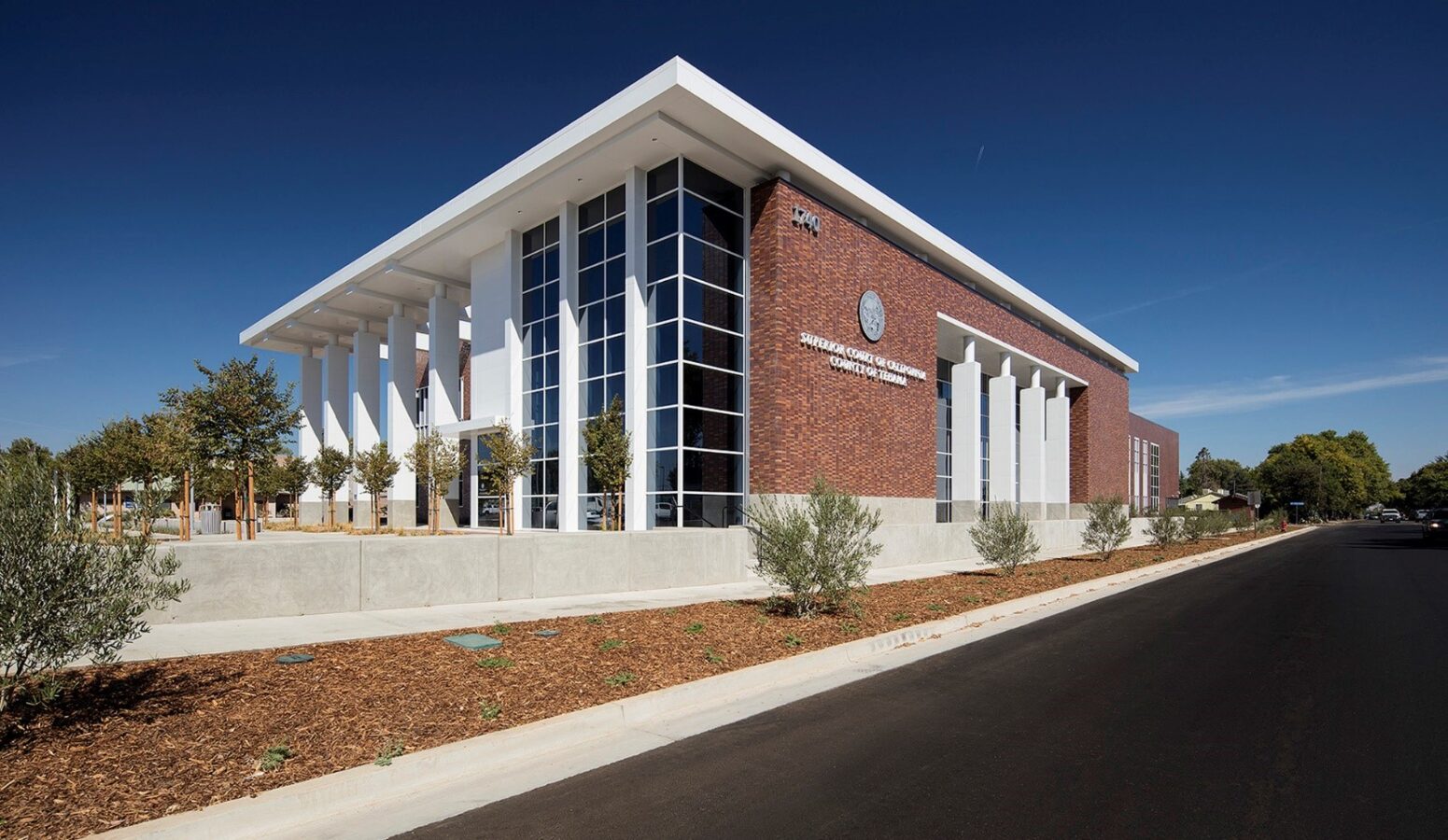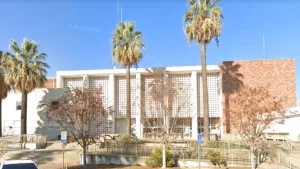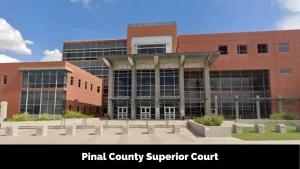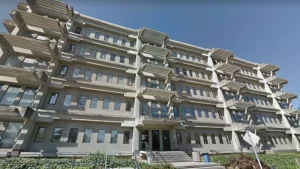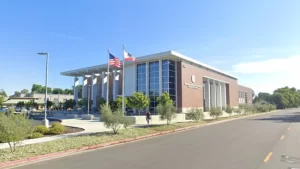Tehama County Superior Court – Juvenile Justice Center
Time
Working Hours:
Monday – Friday:
8:30 a.m. to 4:30 p.m.
Saturday: closed
Sunday: closed
Connect with a Attorney
Overview of the Juvenile Justice Center
The Tehama County Superior Court – Juvenile Justice Center is a branch of the superior court located in Red Bluff, California. It handles all juvenile delinquency matters in Tehama County. The Juvenile Justice Center provides programs and services aimed at rehabilitating youth offenders, reducing recidivism rates, and promoting public safety.
The Juvenile Justice Center was established in 2000 when the county consolidated its separate juvenile hall and juvenile probation departments. The center houses courtrooms, judge’s chambers, the district attorney’s office, probation offices, and detention facilities all in one location. This allows for greater coordination between different agencies involved in handling juvenile cases.
Programs and Services Offered
The Juvenile Justice Center offers several innovative programs and services designed to help rehabilitate youth offenders and set them on a better path.
Juvenile Drug Court
The Juvenile Drug Court provides substance abuse treatment, counseling, educational services, and intensive supervision to youth struggling with drug or alcohol addiction. Participants appear frequently before the drug court judge who monitors their progress and offers incentives or sanctions to encourage compliance. Graduates can have charges dismissed or reduced.
Peer and Family Mediation
This program trains juveniles to become peer mediators to resolve disputes between youth without resorting to violence. It teaches important conflict resolution skills. The Family Mediation component helps resolve parent-child conflicts that may contribute to delinquent behavior.
Parent Project
Parent Project is a class for parents and guardians of at-risk youth. It teaches effective discipline techniques, how to set clear rules and boundaries, and strategies for improving parent-child relationships. Parents learn how to address issues like truancy, alcohol use, gang involvement, and running away.
Friday Night Live
Friday Night Live provides drug- and alcohol-free youth events on Friday evenings. These events give teens positive alternatives to potentially dangerous behaviors on weekends. Activities can include sports, games, movies, dances, and more. The program is run by youth leaders.
Court Process for Juveniles
When a minor is arrested in Tehama County, their case goes through the Juvenile Justice Center. Some key hearings include:
Detention Hearings
Purpose of Detention Hearings
Detention hearings determine if a youth should be held in juvenile hall while their case proceeds. The judge considers factors like offense severity, past record, and public safety risk.
Process and Possible Outcomes
The prosecution requests detention and presents reasons why. The defense argues for release to parents or guardians. The judge decides whether the juvenile stays detained or is released with certain conditions like ankle monitoring.
Jurisdictional Hearings
Purpose of Jurisdictional Hearings
These hearings determine if allegations against the juvenile are true. It is similar to a trial in adult court. The judge decides if there is enough evidence to sustain the charges.
Process and Possible Outcomes
The prosecution presents evidence and witnesses to prove the allegations. The defense can cross-examine and present counter-evidence. If sustained, the case moves ahead to disposition. If not, charges are dismissed.
Dispositional Hearings
Purpose of Dispositional Hearings
Dispositional hearings determine consequences for the sustained charges. The judge reviews background reports and considers options to rehabilitate the youth.
Process and Possible Outcomes
The probation department provides background information to recommend a disposition. All parties can argue for desired outcomes. The judge chooses among options like probation, restitution, counseling, community service, or commitment to a juvenile facility.
Community Impact and Involvement
The Juvenile Justice Center aims to reduce youth crime rates in Tehama County. It impacts the community in the following ways:
Volunteer Opportunities
Community members can volunteer as mentors, tutors, vocational trainers, speakers, or helpers at Friday Night Live events. Volunteers act as positive role models and support at-risk youth.
Donations and Fundraising
The center relies on donations and fundraising to provide enrichment activities and offer incentives for youth participation. Community members can donate goods, services, or money to support beneficial programs.
Importance of Online Court Resources
In recent years, courts like Tehama County Superior Court have expanded online access to improve public access to the justice system. Online court resources allow people to view cases, find information, submit forms, and make payments without traveling to the courthouse. This saves time and makes the courts more user-friendly.
Dockets, Calendars, and Case Information
Viewing Court Schedules and Calendars
The Tehama County Superior Court website allows people to view the weekly court schedule organized by department, case type, and judge. This makes it easy to find the date, time, location and other details about court hearings.
Accessing Published Opinions and Orders
The court website also publishes standing orders of the Tehama County Superior Court. Users can search by order number, description or issue date. Published opinions provide legal guidance.
Searching Attorney General Legal Opinions
The California Attorney General website offers a database of legal opinions dating back to 1985. These formal opinions provide interpretations of state law.
Forms and Related Information
Requesting Court Records
The Administrative Office of the Courts has an online request form to obtain records from the office, Judicial Council or appellate courts. This simplifies record requests.
Filing Complaints Against Attorneys
The State Bar of California website offers information and resources about attorney complaints. An online form allows for easy filing of complaints.
Downloading State Court Forms
Users can view and download California Superior Court forms by name, number, or case type. Recently updated forms are also listed.
Using Interactive Online Forms
TurboCourt partners with the Superior Courts to offer web-based interviews that generate customized forms for filing. A fee applies to use this convenient service.
Online Fine Payments
Paying Criminal and Traffic Fines
People with criminal fines or traffic tickets in Tehama County can pay them online through the court’s payment portal. This is more convenient than mailing payments or visiting the court in-person. A service fee applies.
Self-Help, Legal Research, and General Information
Using the Law Library
The Tehama County Law Library located at the courthouse offers legal resources for public use. Details about the library collection are available online.
Understanding Probate Court Matters
The court website provides information on Tehama County Probate Court, including conservatorships, guardianships, and FAQs. This helps users navigate probate cases.
Getting Information on Civil, Family, and Probate Cases
Users can access information on civil, family law, and probate cases in Tehama County Superior Court online. This includes FAQs and links to additional resources.
Learning About Family Court Services
Details about Tehama County Family Court Services are available online, including child custody mediation services. Links to family law forms and parenting resources are also provided.
Finding Details on Juvenile Cases
The website offers specifics about juvenile cases, the court’s jurisdiction, and links to resources. This information aids those involved in delinquency and dependency matters.
Viewing Local Court Rules
Tehama County Superior Court’s local rules can be accessed online. Knowing the local rules helps ensure compliance with court procedures.
Using Self-Help Resources
Details on Tehama County self-help programs like SHARP and the Family Law Facilitator are available on the court website. These resources assist self-represented litigants.
Understanding Small Claims Cases
Users can learn about small claims court procedures, limits, and how the Small Claims Advisor can help parties with cases. This information promotes access.
Getting Details on Traffic Cases
The website provides facts about traffic cases like payment options, contesting citations, FAQs, and links to additional resources. This helps users navigate traffic matters
Benefits of Online Access
By providing services and information online, the court increases transparency, efficiency and convenience for court users. Online access benefits individuals, attorneys and the general public. The website promotes engagement with the justice system.
Conclusion
The Tehama County Superior Court – Juvenile Justice Center takes a rehabilitative approach to handling juvenile cases in the community. Through its programs, services, and partnerships, it strives to put youth offenders on a better path and create lasting positive change in their lives and in the community. The center provides an alternative to strictly punitive measures in the juvenile justice system. Its success depends on ongoing community involvement and support.
FAQs
How can I volunteer at the Juvenile Justice Center?
Contact the Volunteer Coordinator to learn about current volunteer opportunities. Possibilities include mentoring youth, supervising recreational activities, tutoring, leading workshops, and more. A background check is required.
What happens at a juvenile’s first court appearance?
The first hearing is usually a detention hearing where the judge decides if the youth should remain in custody pending trial. Prosecutors and defense counsel present arguments, and the judge weighs factors like offense severity, past record, and flight risk.
Can the public attend juvenile court proceedings?
In general, juvenile delinquency hearings are confidential and closed to the public. Victims, witnesses, close family members, and others with a direct interest in the case may attend with court approval. The proceedings aim to protect the youth’s privacy.
What are common sentences for juvenile offenders?
Sentences focus on rehabilitation. Probation, community service, restitution, counseling, and home detention are common. Out-of-home placements like juvenile hall or camp may be ordered for serious/repeat offenders. Custody can’t extend beyond age 21 under California law.
What happens when a youth completes their sentence?
If they have successfully completed all terms like probation, counseling, and restitution, the conviction may be dismissed or sealed. This gives them a second chance without a permanent juvenile record. Exceptions exist for serious violent felonies.
Q: What types of cases does the Tehama County Superior Court – Juvenile Justice Center handle?
A: This court handles juvenile delinquency, juvenile dependency, and other cases involving minors under 18 years old. This includes matters like violations of criminal law, abuse/neglect, and status offenses.
Q: How can I look up details about a specific court case in Tehama County?
A: You can look up details like case status, future hearing dates, and documents filed by searching the online court calendar and docket on the Tehama County Superior Court website.
Q: Where can I find Tehama County Superior Court local rules?
A: The local rules governing procedures in Tehama County Superior Court can be found online at the court’s website under the “Local Rules” section. Checking the local rules ensures compliance.
Q: Does the court charge a fee for online payment of fines?
A: Yes, there is typically a service fee charged by the third party vendor for the convenience of paying court fines and traffic tickets online through the website portal. The fee amount should be stated during the payment process.
Q: How can self-help resources benefit a court user?
A: Self-help resources, like family law facilitators and small claims advisors, help self-represented parties understand court procedures, fill out forms, and prepare cases. This promotes fair and equal access to justice.

